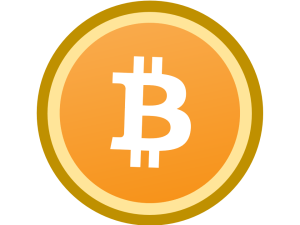Why should a supply chain executive care about Bitcoin, a platform for processing financial transactions? Increasingly, large firms have executives with titles like “Procure to Pay Process Owner” or “VP of Order to Cash Processes.” Similarly, the large ERP companies are increasingly thinking in terms of these kinds of holistic processes when they add functionality to their platforms.
An article in the Wall Street Journal on Bitcoin made the point that Bitcoin, or a digital currency built on similar principles, “could slash trillions in financial fees.”
To understand how it works and why it is more efficient and less expensive than the existing system, let’s take a single example: buying a cup of coffee at your local coffee shop. If you pay with a credit card, the transaction seems simple enough: You swipe your card, you grab your cup, you leave.
In fact, the financial system is just getting started with you and the coffee shop. Before the store actually gets paid and your bank balance falls, more than a half-dozen institutions—such as a billing processor, the card association (Visa, MasterCard, etc.), your bank, the coffee shop’s bank, a payment processor, the clearinghouse network managed by the regional Federal Reserve Banks—will have shared part of your account information or otherwise intervened in the flow of money.
If all goes well, your bank will confirm your identity and good credit and send payment to the coffee shop’s bank two or three days later. For this privilege, the coffee shop pays a fee of between 2% and 3%.
I won’t describe the mechanics, which are complex, but the Bitcoin transaction has fewer intermediaries and consequently far lower fees, it takes from 10 minutes to an hour for the Bitcoin network to confirm a financial transaction (in contrast with the two or three days common to the current process), and the personal information of users or companies isn’t divulged.
The privacy aspect is not something that matters just to drug dealers. Around the world, many people, Europeans in particular, were outraged by the Edward Snowden revelations that showed the extent to which the US government had access to the world’s electronic stream of communication.
When it comes to supply chain and enterprise applications, there is a growing trend toward providing applications in the cloud. At the Oracle Value Chain Summit last week, Mark Hurd, the CEO of Oracle, said that cloud applications will account for 50 to 60 percent of the total enterprise application market within 5 to 6 years because of advantages related to speed of development of new functionality, easier implementations and much, much easier upgrades.
But at the Oracle event, they wanted it to be crystal clear that if customers buy their cloud solutions they will be secure. They discussed the encryption involved in writing data into and out of the Oracle databases.
Also discussed were the new data centers that were built outside of the US. While not discussed publicly, European companies in particular do not want their data hosted in data centers operated within the borders of the US or its key allies (the UK, Australia, and New Zealand).
Bitcoin has flaws, perhaps the biggest being that its price fluctuates too wildly. But it is easy to see that if those swings lessen, big companies would see value in having their financial transactions being kept far more private and secure than is possible under current processes.
Source : http://logisticsviewpoints.com/2015/02/02/bitcoin-and-the-order-to-cash-supply-chain/
Click on the bitcoin logo below to buy, use or accept bitcoin. Unocoin is India’s most popular bitcoin wallet.
To read the bitcoin white paper, visit: https://bitcoin.org/bitcoin.pdf









